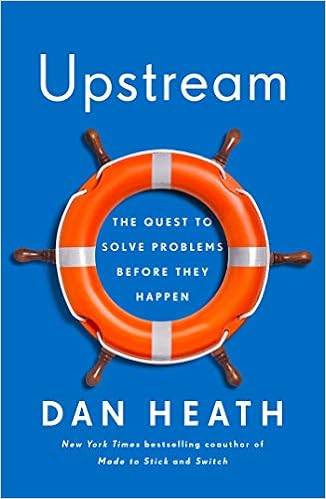Reading Level
What is the reading level of Upstream?
Analysing the books in the series, we estimate that the reading level of Upstream is 10th and 11th grade.
Expert Readability Tests for
Upstream
| Readability Test | Reading Level |
|---|---|
| Flesch Kincaid Scale | Grade 8 |
| SMOG Index | Grade 10 |
| Coleman Liau Index | Grade 10 |
| Dale Chall Readability Score | Grade 7 |
Reading Time
4 hrs 50 mins
How long to read Upstream?
The estimated word count of Upstream is 72,385 words.
A person reading at the average speed of 250 words/min, will finish the book in 4 hrs 50 mins. At a slower speed of 150 words/min, they will finish it in 8 hrs 3 mins. At a faster speed of 450 words/min, they will finish it in 2 hrs 41 mins.
| Upstream - 72,385 words | ||
|---|---|---|
| Reading Speed | Time to Read | |
| Slow | 150 words/min | 8 hrs 3 mins |
| Average | 250 words/min | 4 hrs 50 mins |
| Fast | 450 words/min | 2 hrs 41 mins |
- Authors
-
Dan Heath
More about Upstream
72,385 words
Word Count
for Upstream
320 pages
Pages
7 hours and 47 minutes
Audiobook length
Description
Wall Street Journal Bestseller New York Times bestselling author Dan Heath explores how to prevent problems before they happen, drawing on insights from hundreds of interviews with unconventional problem solvers.So often in life, we get stuck in a cycle of response. We put out fires. We deal with emergencies. We stay downstream, handling one problem after another, but we never make our way upstream to fix the systems that caused the problems. Cops chase robbers, doctors treat patients with chronic illnesses, and call-center reps address customer complaints. But many crimes, chronic illnesses, and customer complaints are preventable. So why do our efforts skew so heavily toward reaction rather than prevention? Upstream probes the psychological forces that push us downstream—including “problem blindness,” which can leave us oblivious to serious problems in our midst. And Heath introduces us to the thinkers who have overcome these obstacles and scored massive victories by switching to an upstream mindset. One online travel website prevented twenty million customer service calls every year by making some simple tweaks to its booking system. A major urban school district cut its dropout rate in half after it figured out that it could predict which students would drop out—as early as the ninth grade. A European nation almost eliminated teenage alcohol and drug abuse by deliberately changing the nation’s culture. And one EMS system accelerated the emergency-response time of its ambulances by using data to predict where 911 calls would emerge—and forward-deploying its ambulances to stand by in those areas. Upstream delivers practical solutions for preventing problems rather than reacting to them. How many problems in our lives and in society are we tolerating simply because we’ve forgotten that we can fix them?
